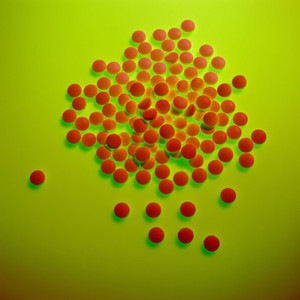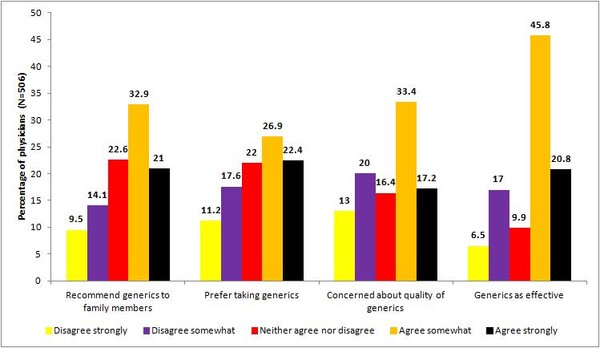How do physicians perceive generics substitution? Many patients do not communicate with their physicians regarding out-of-pocket expenses or medication choices. Therefore, understanding physicians’ perceptions about the quality and efficacy of generics could help to identify potential barriers to increasing the use of generic drugs [1].
Physician perceptions of generics substitution
Biosimilars/Research
|
Posted 27/01/2012
 0
Post your comment
0
Post your comment

An online survey carried out amongst US physicians highlighted the fact that many patients have difficulties with prescription drug costs. From the 506 eligible physicians that completed the survey, 51% reported talking to patients about how to save money on their medications. In addition, physicians reported that 25% of their patients have not filled a prescription due to cost, 22% skipped doses to make prescriptions last longer, 19% took smaller doses than prescribed due to cost and 13% spent less on food, heat or other essentials in order to afford their medications. In addition, over 50% of physicians said the current economic crisis had affected their patients.
Most physicians (66.6%) believed that generics were as effective as brand-name drugs, however, half (50.6%) expressed concern about their quality. Almost half (49.3%) of respondents preferred to take generics themselves and would recommend them to family members (53.9%), see Figure 1.
Figure 1: Physician perceptions about generics medications
Source: Shrank W. et al [1].
Older physicians (> 55 years) were more than three times more likely to report concern about generics quality, were 5.8 times more likely to report that they would not use generics themselves and were 7.5 times more likely to state that they would not recommend generics to family members. This phenomenon has also been observed in other studies where, although patient’s age and gender had no significant impact, the older a male doctor is the more likely it is that he continues to prescribe the brand-name product [2].
When asked how physicians were informed about generics market entry, the most common source (75%) was a pharmaceutical representative, with medical journals (42%), colleagues (40%) and pharmaceutical mailings or literature (38%) taking second place.
This study highlights the need for physicians–especially those older and more set in their ways–to be educated in generics prescribing.
Related articles
Factors important for generics substitution in Finland
Perception of generic drugs as fake among Pakistani immigrants
Pakistani immigrants may confuse generic and counterfeit drugs
References
1. Shrank W, et al. Physician perceptions about generic drugs. Ann Pharmacother 2011;45:31-8.
2. GaBI Online - Generics and Biosimilars Initiative. Generic substitution in Norway [www.gabionline.net]. Mol, Belgium: Pro Pharma Communications International; [cited 2012 Jan 27]. Available from: www.gabionline.net/Generics/Research/Generic-substitution-in-Norway
News
FDA approves Poherdy (first interchangeable pertuzumab) and Armlupeg (pegfilgrastim) biosimilars
EMA recommends approval for insulin glargine biosimilar Ondibta and denosumab biosimilar Osqay
General
Samsung Bioepis wins Pyzchiva case; Regeneron patent rulings threaten foreign biosimilars
Chinese biosimilars go global: growth, partnerships, and challenges
What is the future for the US biosimilar interchangeability designation

Biosimilars/Research Posted 05/06/2025
Biosimilar clinical efficacy studies: are they still necessary?

Biosimilars/Research Posted 27/05/2025
The best selling biotechnology drugs of 2008: the next biosimilars targets









Post your comment